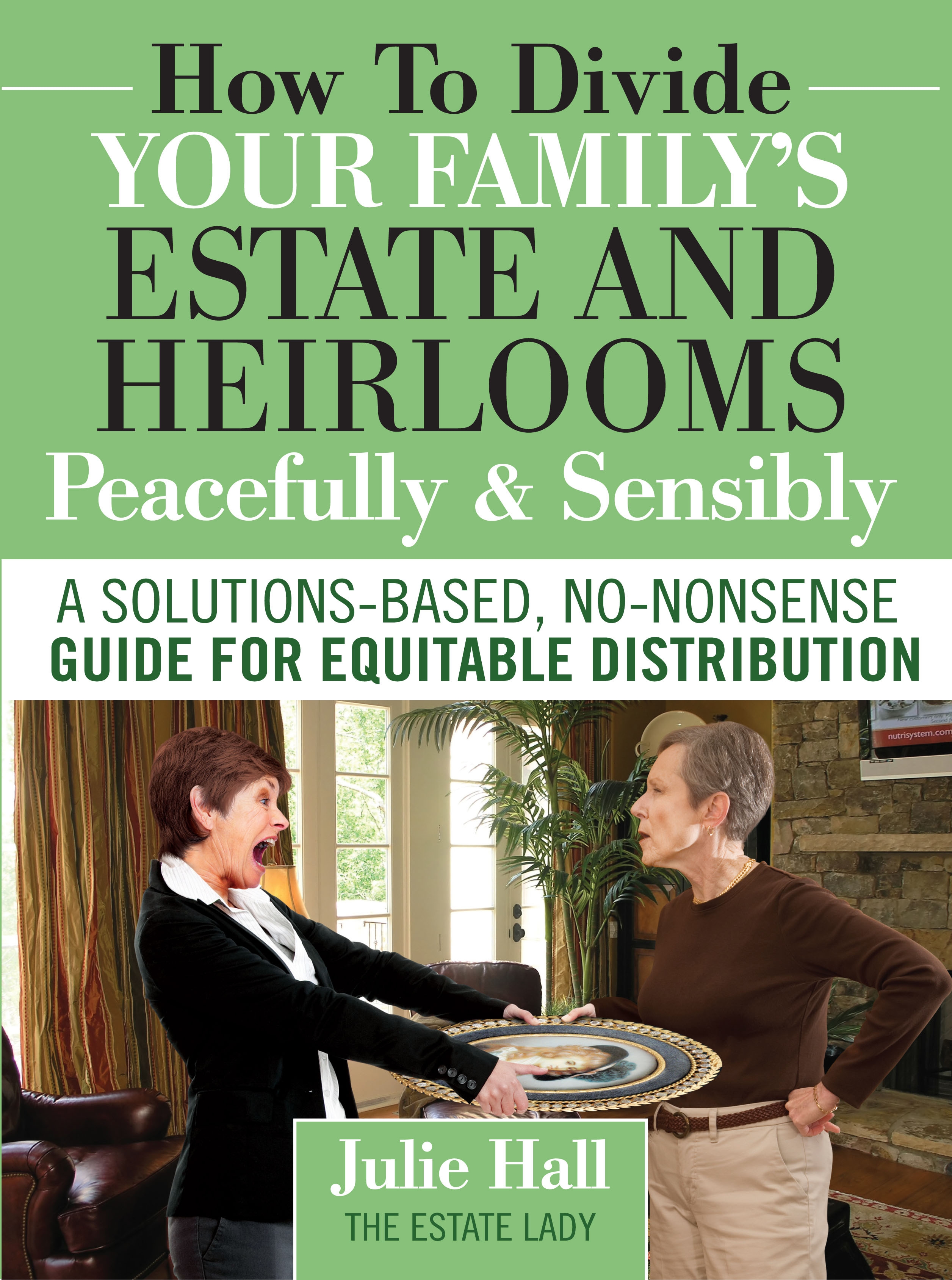In the past, we’ve talked about supply and demand, how the younger generations don’t want grandma’s china, crystal, or antiques. The market is getting flooded and everyone is trying to sell, sell, sell. So the prices go down, down, down.
The bottom line is you need to have a professional come out and look at what you have, so they can advise you on the best way to proceed on the dissolution of the possessions. There are good ways and bad ways to go about this. Find a reputable personal property appraiser to do a walk-through consultation. This consultation should include offering opinions of value in your region and in this market, advice on which resource is the best for selling the items, and if possible, what’s worth selling, what should be donated, discarded, etc.
Then, think about these options:
Estate Liquidation — Hire a professional estate liquidator who has experience, an outstanding reputation in your community, excellent BBB rating in your state, and who has been recommended to you by others. They normally charge 30-40% commission and this may or may not include the clean out of the home. The liquidator sets the prices but will often negotiate. A plan must be in place to deal with the leftovers or remaining items that did not sell.
Ask the liquidator if they are members of any professional organizations, credentials, certifications, etc., and then check them. Make sure they have no unresolved complaints against them. Ask for professional references and check them. If you cannot find a liquidator, call an estate planning firm and ask them for a referral, or contact us at Service@ASELonline.com (The American Society of Estate Liquidators).
An estate sale is not a yard sale. The best estate sale is one that has primarily the entire household full of variety that will attract buyers, plenty of parking space on the road in the neighborhood and in a good area.
Auction Company — The same rules apply to an auction. Check them out thoroughly. The national average commission is 25%, but make sure you understand what that percentage includes. Ask about pick-up fees, advertising, how long before paid, etc. The public pretty much sets the prices based on what they are willing to pay for the piece, unless you request a reserve price on a particular piece, but this tends to scare off potential buyers. Auction is an excellent option for many household goods ranging from antiques to farm equipment, if it is not a full house, if it’s located in a gated community, apartment, narrow streets, etc.
Consignment Company — The average consignment commission is 40-50% and most items will need to be sold within 90-120 days or you may need to go pick them up, or the consignment company can donate them for you. They set the prices and generally go down in price as time passes. Often you will need to bring the items by the store or provide photographs, so they can approve or reject each item.
Do-It-Yourself Estate Sale or Yard Sale — It is do-able, but a ton of work for not a lot of money, plus dealing with the public is no easy task. The good in this is that you get to keep the proceeds without paying a commission, but you need to know the value on items before you begin the process. You wouldn’t want something worth $1,000 to be sold for $10. It happens frequently.
Ebay, Craigslist, other online sites — If you have the patience to deal with these painstaking options, go for it. While I agree they have their advantages, you will need to know the correct wording and descriptions to get started and maximize proceeds. The fees on Ebay are getting to the point where people can’t even make decent money, not to mention having to pack it up, send it across the country, and then find out that the buyer is going to make your life miserable, because she doesn’t like it and wants a refund. It takes time, diligence, and patience. You could always pay a student to do this for you, but they won’t have the knowledge to describe the item appropriately, and what could sell for hundreds might sell for $12.
Classified Ads — Well, it’s an option. Sometimes they work and sometimes they don’t. You have to be willing, like with Craigslist, to let strangers into your home, and many do not like that idea.
Create flyers and distribute on church/temple bulletin boards, friends, and neighbors. Make sure you know what you have before you begin to sell it.
To get maximum proceeds from the items in an estate or home, enlist the help of a professional so they can steer you in the right direction!
© 2012 Julie Hall



